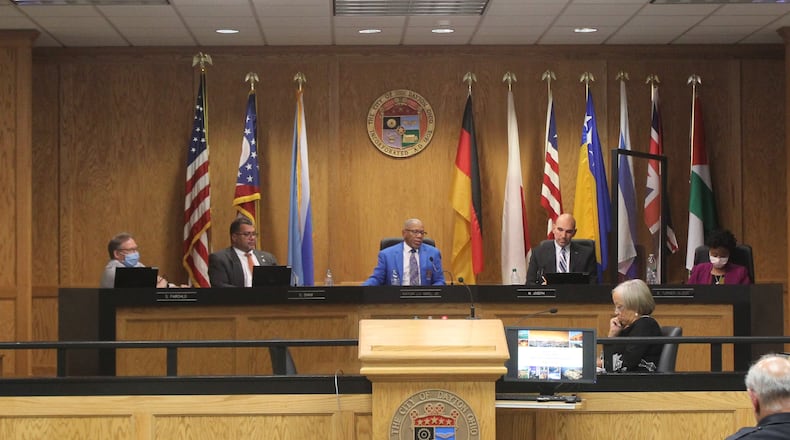A vote was originally scheduled for Wednesday night’s city commission meeting, during which Turner-Sloss and Fairchild said they would abstain from voting on emergency legislation approving the 2023 budget that includes a general fund budget of nearly $208 million.
Tempers flared during the Dec. 8 meeting, and these tensions continued into Saturday.
Turner-Sloss and Fairchild said Wednesday that their budget priorities were not properly addressed or included in the city’s spending plan. The two members reiterated these concerns Saturday, which along with issues surrounding youth development funding, centered around fire department staffing, and neighborhood blight improvements, as well as a lack of community input into the budget planning process.
Twenty residents and business leaders spoke during Saturday’s public comment segment, which began two hours into the special meeting. Some speakers pleaded with commissioners to pass budget legislation immediately, while others showed support for Turner-Sloss and Fairchild, urging them to uphold their decision not to vote in favor of the budget as it currently stands.
After the budget failed to pass on Wednesday, city officials and commissioners Christopher Shaw, Matt Joseph and Mims warned that it must be approved soon to avoid an unprecedented government shutdown in which city services would cease to operate on Jan. 1.
Fairchild and Turner-Sloss responded by saying this was a “manufactured crisis” and the city had the ability and duty to make changes to the budget to address their areas of concern. The two commissioners also shared concern that there were only seven days between the full budget becoming publicly available and the vote held Wednesday. “That is not a transparent or inclusive process,” Turner-Sloss said Friday.
All of the commissioners and the mayor agreed they would continue to discuss concerns with the budget following Saturday’s vote.
During closing comments Saturday, Turner-Sloss addressed the strained process, and the commission’s intent to create a budget process that prioritizes community involvement.
“I want to apologize to the community, our business leaders, our union leaders, our union, the city staff members, that it had to come to this to understand the importance for all of us to communicate effectively,” she said. “We have made the commitment that there will be seven public meetings where residents will have an opportunity to engage.”
About the Author

